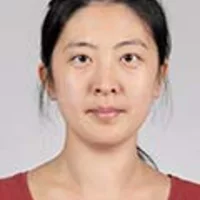Vision
Our vision is the understanding of atmospheric chemical processes by which emissions transform and perturb atmospheric oxidation conditions and form secondary pollutants, like aerosols and ozone. This is critical for assessing the environmental impacts of different emissions and the consequences for air quality, climate and human health.
Mission
Our mission is to develop analytical techniques, simulation reactors and numerical tools for the characterization of the aerosol molecular composition, sources, and formation pathways in diverse environments ranging from the Arctic to polluted atmospheres like China and India. We simulate these environments in state-of-the-art smog chambers at PSI and at CERN, as well as using mobile reactors. By implementing detailed molecular-level experimental data in box models, we derive simple parameterizations that can be integrated in regional air quality models to estimate the environmental impacts of different pollution sources and formation pathways.
People
Projects
| Project Absteigend sortieren | Description | Duration Aufsteigend sortieren | Contact |
|---|---|---|---|
| SNSF Ambizione MACrAA | Macromolecular aerosols in the cryosphere from the Arctic to the Alps |
2022-2026 | Dr. Patrik Winiger |
Recent publications (2021-2023)
A complete publication list from 2006 onwards including reprints or postprints as copyright allows is available through the institutional repository (Dora-PSI).
-
Bhattu D, Tripathi SN, Bhowmik HS, Moschos V, Lee CP, Rauber M, et al.
Local incomplete combustion emissions define the PM2.5 oxidative potential in Northern India
Nature Communications. 2024; 15(1): 3517 (13 pp.). https://doi.org/10.1038/s41467-024-47785-5
DORA PSI -
Cheung RKY, Qi L, Manousakas MI, Puthussery JV, Zheng Y, Koenig TK, et al.
Major source categories of PM2.5 oxidative potential in wintertime Beijing and surroundings based on online dithiothreitol-based field measurements
Science of the Total Environment. 2024; 928: 172345 (14 pp.). https://doi.org/10.1016/j.scitotenv.2024.172345
DORA PSI -
Chowdhury S, Marginean I, Chaudhary E, Upadhyay A, Aunan K
Impact of the changing climate on air pollution, heat stress and human health
In: Hadi Dehghani M, Rao Karri R, Vera T, Kamal Mohamed Hassan S, eds. Health and environmental effects of ambient air pollution. Air pollution, human health, and the environment. Elsevier; 2024:331-359. https://doi.org/10.1016/B978-0-443-16088-2.00009-0
DORA PSI -
Dada L, Huang W, El-Haddad I
Molecular mechanisms of aerosol nucleation: from CLOUD chamber experiments to field observations
Chimia. 2024; 78(11): 739-747. https://doi.org/10.2533/chimia.2024.739
DORA PSI -
El Haddad I, Vienneau D, Daellenbach KR, Modini R, Slowik JG, Upadhyay A, et al.
Opinion: How will advances in aerosol science inform our understanding of the health impacts of outdoor particulate pollution?
Atmospheric Chemistry and Physics. 2024; 24(20): 11981-12011. https://doi.org/10.5194/acp-24-11981-2024
DORA PSI -
Garner NM, Top J, Mahrt F, El Haddad I, Ammann M, Bell DM
Iron-containing seed particles enhance α-pinene secondary organic aerosol mass concentration and dimer formation
Environmental Science and Technology. 2024; 58(38): 16984-16993. https://doi.org/10.1021/acs.est.4c07626
DORA PSI -
Li D, Wang D, Caudillo L, Scholz W, Wang M, Tomaz S, et al.
Ammonium CI-Orbitrap: a tool for characterizing the reactivity of oxygenated organic molecules
Atmospheric Measurement Techniques. 2024; 17(17): 5413-5428. https://doi.org/10.5194/amt-17-5413-2024
DORA PSI -
Li D, Huang W, Wang D, Wang M, Thornton JA, Caudillo L, et al.
Nitrate radicals suppress biogenic new particle formation from monoterpene oxidation
Environmental Science and Technology. 2024; 58(3): 1601-1614. https://doi.org/10.1021/acs.est.3c07958
DORA PSI -
Li K, Zhang J, Bell DM, Wang T, Lamkaddam H, Cui T, et al.
Uncovering the dominant contribution of intermediate volatility compounds in secondary organic aerosol formation from biomass-burning emissions
National Science Review. 2024; 11(3): nwae014 (9 pp.). https://doi.org/10.1093/nsr/nwae014
DORA PSI -
Liu L, Hohaus T, Franke P, Lange AC, Tillmann R, Fuchs H, et al.
Observational evidence reveals the significance of nocturnal chemistry in seasonal secondary organic aerosol formation
npj Climate and Atmospheric Science. 2024; 7(1): 207 (11 pp.). https://doi.org/10.1038/s41612-024-00747-6
DORA PSI -
Marten R, Xiao M, Wang M, Kong W, He X-C, Stolzenburg D, et al.
Assessing the importance of nitric acid and ammonia for particle growth in the polluted boundary layer
Environmental Science: Atmospheres. 2024; 4(2): 265-274. https://doi.org/10.1039/D3EA00001J
DORA PSI -
Rörup B, He XC, Shen J, Baalbaki R, Dada L, Sipilä M, et al.
Temperature, humidity, and ionisation effect of iodine oxoacid nucleation
Environmental Science: Atmospheres. 2024; 4(5): 531-546. https://doi.org/10.1039/d4ea00013g
DORA PSI -
Sabic S, Bell D, Gasic B, Schmid K, Peter T, Marcolli C
Exposure assessment during paint spraying and drying using PTR-ToF-MS
Frontiers in Public Health. 2024; 11: 1327187 (14 pp.). https://doi.org/10.3389/fpubh.2023.1327187
DORA PSI -
Schervish M, Heinritzi M, Stolzenburg D, Dada L, Wang M, Ye Q, et al.
Interactions of peroxy radicals from monoterpene and isoprene oxidation simulated in the radical volatility basis set
Environmental Science: Atmospheres. 2024; 4(7): 740-753. https://doi.org/10.1039/d4ea00056k
DORA PSI -
Shen X, Bell DM, Coe H, Hiranuma N, Mahrt F, Marsden NA, et al.
Measurement report: The Fifth International Workshop on Ice Nucleation phase 1 (FIN-01): intercomparison of single-particle mass spectrometers
Atmospheric Chemistry and Physics. 2024; 24(18): 10869-10891. https://doi.org/10.5194/acp-24-10869-2024
DORA PSI -
Shen J, Russell DM, DeVivo J, Kunkler F, Baalbaki R, Mentler B, et al.
New particle formation from isoprene under upper-tropospheric conditions
Nature. 2024; 636(8041): 115-123. https://doi.org/10.1038/s41586-024-08196-0
DORA PSI -
Surdu M, Top J, Yang B, Zhang J, Slowik JG, Prévôt ASH, et al.
Real-time identification of aerosol-phase carboxylic acid production using extractive electrospray ionization mass spectrometry
Environmental Science and Technology. 2024; 58: 8857-8866. https://doi.org/10.1021/acs.est.4c01605
DORA PSI -
Upadhyay A, Sharma P, Chowdhury S
Machine learning applications in air quality management and policies
In: Awasthi A, Pattnayak KC, Dhiman G, Tiwari PR, eds. Artificial intelligence for air quality monitoring and prediction. Boca Raton: CRC Press; 2024:147-164. https://doi.org/10.1201/9781032683805-9
DORA PSI -
Wang T, Li K, Bell DM, Zhang J, Cui T, Surdu M, et al.
Large contribution of in-cloud production of secondary organic aerosol from biomass burning emissions
npj Climate and Atmospheric Science. 2024; 7(1): 149 (9 pp.). https://doi.org/10.1038/s41612-024-00682-6
DORA PSI -
Xenofontos C, Kohl M, Ruhl S, Almeida J, Beckmann HM, Caudillo-Plath L, et al.
The impact of ammonia on particle formation in the Asian Tropopause Aerosol Layer
npj Climate and Atmospheric Science. 2024; 7(1): 215 (12 pp.). https://doi.org/10.1038/s41612-024-00758-3
DORA PSI -
Yu Q, Veltkamp HW, Wiegerink RJ, Lötters JC
Fabrication of buried microchannels with almost circular cross-section using HNA wet etching
Micromachines. 2024; 15(10): 1230 (16 pp.). https://doi.org/10.3390/mi15101230
DORA PSI -
Zhang J, Zuend A, Top J, Surdu M, EI Haddad I, Slowik JG, et al.
Estimation of the volatility and apparent activity coefficient of levoglucosan in wood-burning organic aerosols
Environmental Science and Technology Letters. 2024; 11(11): 1214-1219. https://doi.org/10.1021/acs.estlett.4c00608
DORA PSI -
Alfarra R, Baltensperger U, Bell DM, Danelli SG, Di Biagio C, Doussin J-F, et al.
Preparation of the experiment: addition of particles
In: Doussin J-F, Fuchs H, Kiendler-Scharr A, Seakins P, Wenger J, eds. A practical guide to atmospheric simulation chambers. Cham: Springer; 2023:163-206. https://doi.org/10.1007/978-3-031-22277-1_5
DORA PSI -
Bell DM, Pospisilova V, Lopez-Hilfiker F, Bertrand A, Xiao M, Zhou X, et al.
Effect of OH scavengers on the chemical composition of α-pinene secondary organic aerosol
Environmental Science: Atmospheres. 2023; 3(1): 115-123. https://doi.org/10.1039/d2ea00105e
DORA PSI -
Bell D, Doussin J-F, Hohaus T
Preparation of simulation chambers for experiments
In: Doussin J-F, Fuchs H, Kiendler-Scharr A, Seakins P, Wenger J, eds. A practical guide to atmospheric simulation chambers. Cham: Springer; 2023:113-127. https://doi.org/10.1007/978-3-031-22277-1_3
DORA PSI -
Bell DM, Cirtog M, Doussin J-F, Fuchs H, Illman J, Muñoz A, et al.
Preparation of the experiment: addition and in situ production of trace gases and oxidants in the gas phase
In: Doussin J-F, Fuchs H, Kiendler-Scharr A, Seakins P, Wenger J, eds. A practical guide to atmospheric simulation chambers. Cham: Springer; 2023:129-161. https://doi.org/10.1007/978-3-031-22277-1_4
DORA PSI -
Bell DM, Zhang J, Top J, Bogler S, Surdu M, Slowik JG, et al.
Sensitivity constraints of extractive electrospray for a model system and secondary organic aerosol
Analytical Chemistry. 2023; 95(37): 13788-13795. https://doi.org/10.1021/acs.analchem.3c00441
DORA PSI -
Casotto R, Skiba A, Rauber M, Strähl J, Tobler A, Bhattu D, et al.
Organic aerosol sources in Krakow, Poland, before implementation of a solid fuel residential heating ban
Science of the Total Environment. 2023; 855: 158655 (12 pp.). https://doi.org/10.1016/j.scitotenv.2022.158655
DORA PSI -
Caudillo L, Surdu M, Lopez B, Wang M, Thoma M, Bräkling S, et al.
An intercomparison study of four different techniques for measuring the chemical composition of nanoparticles
Atmospheric Chemistry and Physics. 2023; 23(11): 6613-6631. https://doi.org/10.5194/acp-23-6613-2023
DORA PSI -
Dada L, Stolzenburg D, Simon M, Fischer L, Heinritzi M, Wang M, et al.
Role of sesquiterpenes in biogenic new particle formation
Science Advances. 2023; 9(36): eadi5297 (15 pp.). https://doi.org/10.1126/sciadv.adi5297
DORA PSI -
Daellenbach KR, Manousakas M, Jiang J, Cui T, Chen Y, El Haddad I, et al.
Organic aerosol sources in the Milan metropolitan area - receptor modelling based on field observations and air quality modelling
Atmospheric Environment. 2023; 307: 119799 (10 pp.). https://doi.org/10.1016/j.atmosenv.2023.119799
DORA PSI -
Finkenzeller H, Iyer S, He X-C, Simon M, Koenig TK, Lee CF, et al.
The gas-phase formation mechanism of iodic acid as an atmospheric aerosol source
Nature Chemistry. 2023; 15: 129-135. https://doi.org/10.1038/s41557-022-01067-z
DORA PSI -
Graham EL, Wu C, Bell DM, Bertrand A, Haslett SL, Baltensperger U, et al.
Volatility of aerosol particles from NO3 oxidation of various biogenic organic precursors
Atmospheric Chemistry and Physics. 2023; 23(13): 7347-7362. https://doi.org/10.5194/acp-23-7347-2023
DORA PSI -
Haslett SL, Bell DM, Kumar V, Slowik JG, Wang DS, Mishra S, et al.
Nighttime NO emissions strongly suppress chlorine and nitrate radical formation during the winter in Delhi
Atmospheric Chemistry and Physics. 2023; 23(16): 9023-9036. https://doi.org/10.5194/acp-23-9023-2023
DORA PSI -
He XC, Simon M, Iyer S, Xie HB, Rörup B, Shen J, et al.
Iodine oxoacids enhance nucleation of sulfuric acid particles in the atmosphere
Science. 2023; 382(6676): 1308-1314. https://doi.org/10.1126/science.adh2526
DORA PSI -
Kirkby J, Amorim A, Baltensperger U, Carslaw KS, Christoudias T, Curtius J, et al.
Atmospheric new particle formation from the CERN CLOUD experiment
Nature Geoscience. 2023; 16(11): 948-957. https://doi.org/10.1038/s41561-023-01305-0
DORA PSI -
Kumar V, Slowik JG, Baltensperger U, Prevot ASH, Bell DM
Time-resolved molecular characterization of secondary organic aerosol formed from OH and NO3 radical initiated oxidation of a mixture of aromatic precursors
Environmental Science and Technology. 2023; 57(31): 11572-11582. https://doi.org/10.1021/acs.est.3c00225
DORA PSI -
Mishra S, Tripathi SN, Kanawade VP, Haslett SL, Dada L, Ciarelli G, et al.
Rapid night-time nanoparticle growth in Delhi driven by biomass-burning emissions
Nature Geoscience. 2023; 16(3): 224-230. https://doi.org/10.1038/s41561-023-01138-x
DORA PSI -
Nie W, Yan C, Yang L, Roldin P, Liu Y, Vogel AL, et al.
NO at low concentration can enhance the formation of highly oxygenated biogenic molecules in the atmosphere
Nature Communications. 2023; 14(1): 3347 (11 pp.). https://doi.org/10.1038/s41467-023-39066-4
DORA PSI -
Pfeifer J, Mahfouz NGA, Schulze BC, Mathot S, Stolzenburg D, Baalbaki R, et al.
Measurement of the collision rate coefficients between atmospheric ions and multiply charged aerosol particles in the CERN CLOUD chamber
Atmospheric Chemistry and Physics. 2023; 23(12): 6703-6718. https://doi.org/10.5194/acp-23-6703-2023
DORA PSI -
Romano L, Jefimovs K
Editorial for the special issue on recent advances in reactive ion etching and applications of high-aspect-ratio microfabrication
Micromachines. 2023; 14(8): 1630 (2 pp.). https://doi.org/10.3390/mi14081630
DORA PSI -
Schobesberger S, D'Ambro EL, Vettikkat L, Lee BH, Peng Q, Bell DM, et al.
Airborne flux measurements of ammonia over the southern Great Plains using chemical ionization mass spectrometry
Atmospheric Measurement Techniques. 2023; 16(2): 247-271. https://doi.org/10.5194/amt-16-247-2023
DORA PSI -
Surdu M, Lamkaddam H, Wang DS, Bell DM, Xiao M, Lee CP, et al.
Molecular understanding of the enhancement in organic aerosol mass at high relative humidity
Environmental Science and Technology. 2023; 57(6): 2297-2309. https://doi.org/10.1021/acs.est.2c04587
DORA PSI -
Wang H, Wang L, Yang B, Li X, Hou R, Hu Z, et al.
Sustainable soil remediation using mineral and hydrogel: field evidence for metalloid immobilization and soil health improvement
Journal of Soils and Sediments. 2023; 23: 3060-3070. https://doi.org/10.1007/s11368-023-03541-8
DORA PSI -
Zhang J, Li K, Wang T, Gammelsæter E, Cheung RKY, Surdu M, et al.
Bulk and molecular-level composition of primary organic aerosol from wood, straw, cow dung, and plastic burning
Atmospheric Chemistry and Physics. 2023; 23(22): 14561-14576. https://doi.org/10.5194/acp-23-14561-2023
DORA PSI -
Zhang J, Shrivastava M, Zelenyuk A, Zaveri RA, Surratt JD, Riva M, et al.
Observationally constrained modeling of the reactive uptake of isoprene-derived epoxydiols under elevated relative humidity and varying acidity of seed aerosol conditions
ACS Earth and Space Chemistry. 2023; 7(4): 788-799. https://doi.org/10.1021/acsearthspacechem.2c00358
DORA PSI -
Amaladhasan DA, Heyn C, Hoyle CR, El Haddad I, Elser M, Pieber SM, et al.
Modelling the gas-particle partitioning and water uptake of isoprene-derived secondary organic aerosol at high and low relative humidity
Atmospheric Chemistry and Physics. 2022; 22(1): 215-244. https://doi.org/10.5194/acp-22-215-2022
DORA PSI -
Bell DM, Wu C, Bertrand A, Graham E, Schoonbaert J, Giannoukos S, et al.
Particle-phase processing of α-pinene NO3 secondary organic aerosol in the dark
Atmospheric Chemistry and Physics. 2022; 22(19): 13167-13182. https://doi.org/10.5194/acp-22-13167-2022
DORA PSI -
Bogler S, Daellenbach KR, Bell DM, Prévôt ASH, El Haddad I, Borduas-Dedekind N
Singlet oxygen seasonality in aqueous PM10 is driven by biomass burning and anthropogenic secondary organic aerosol
Environmental Science and Technology. 2022; 56(22): 15389-15397. https://doi.org/10.1021/acs.est.2c04554
DORA PSI -
Chazeau B, El Haddad I, Canonaco F, Temime-Roussel B, D'Anna B, Gille G, et al.
Organic aerosol source apportionment by using rolling positive matrix factorization: application to a Mediterranean coastal city
Atmospheric Environment: X. 2022; 14: 100176 (16 pp.). https://doi.org/10.1016/j.aeaoa.2022.100176
DORA PSI -
Chen G, Canonaco F, Tobler A, Aas W, Alastuey A, Allan J, et al.
European aerosol phenomenology - 8: harmonised source apportionment of organic aerosol using 22 year-long ACSM/AMS datasets
Environment International. 2022; 166: 107325 (18 pp.). https://doi.org/10.1016/j.envint.2022.107325
DORA PSI -
Chen G, Canonaco F, Slowik JG, Daellenbach KR, Tobler A, Petit J-E, et al.
Real-time source apportionment of organic aerosols in three European cities
Environmental Science and Technology. 2022; 56(22): 15290-15297. https://doi.org/10.1021/acs.est.2c02509
DORA PSI -
D'Ambro EL, Hyttinen N, Møller KH, Iyer S, Otkjær RV, Bell DM, et al.
Pathways to highly oxidized products in the Δ3-carene + OH system
Environmental Science and Technology. 2022; 56(4): 2213-2224. https://doi.org/10.1021/acs.est.1c06949
DORA PSI -
Fast JD, Bell DM, Kulkarni G, Liu J, Mei F, Saliba G, et al.
Using aircraft measurements to characterize subgrid-scale variability of aerosol properties near the Atmospheric Radiation Measurement Southern Great Plains site
Atmospheric Chemistry and Physics. 2022; 22(17): 11217-11238. https://doi.org/10.5194/acp-22-11217-2022
DORA PSI -
Karlsson L, Baccarini A, Duplessis P, Baumgardner D, Brooks IM, Chang RY-W, et al.
Physical and chemical properties of cloud droplet residuals and aerosol particles during the Arctic Ocean 2018 expedition
Journal of Geophysical Research: Atmospheres. 2022; 127(11): e2021JD036383 (20 pp.). https://doi.org/10.1029/2021JD036383
DORA PSI -
Kumar V, Giannoukos S, Haslett SL, Tong Y, Singh A, Bertrand A, et al.
Highly time-resolved chemical speciation and source apportionment of organic aerosol components in Delhi, India, using extractive electrospray ionization mass spectrometry
Atmospheric Chemistry and Physics. 2022; 22(11): 7739-7761. https://doi.org/10.5194/acp-22-7739-2022
DORA PSI -
Lee CP, Surdu M, Bell DM, Dommen J, Xiao M, Zhou X, et al.
High-frequency gaseous and particulate chemical characterization using extractive electrospray ionization mass spectrometry (Dual-Phase-EESI-TOF)
Atmospheric Measurement Techniques. 2022; 15(12): 3747-3760. https://doi.org/10.5194/amt-15-3747-2022
DORA PSI -
Liu J, D'Ambro EL, Lee BH, Schobesberger S, Bell DM, Zaveri RA, et al.
Monoterpene photooxidation in a continuous-flow chamber: SOA yields and impacts of oxidants, NOx, and VOC precursors
Environmental Science and Technology. 2022; 56(17): 12066-12076. https://doi.org/10.1021/acs.est.2c02630
DORA PSI -
Manousakas M, Furger M, Daellenbach KR, Canonaco F, Chen G, Tobler A, et al.
Source identification of the elemental fraction of particulate matter using size segregated, highly time-resolved data and an optimized source apportionment approach
Atmospheric Environment: X. 2022; 14: 100165 (15 pp.). https://doi.org/10.1016/j.aeaoa.2022.100165
DORA PSI -
Marten R, Xiao M, Rörup B, Wang M, Kong W, He X-C, et al.
Survival of newly formed particles in haze conditions
Environmental Science: Atmospheres. 2022; 2(3): 491-499. https://doi.org/10.1039/d2ea00007e
DORA PSI -
Masalaite A, Byčenkienė S, Pauraitė J, Garbariene I, el Haddad I, Bozzetti C, et al.
Seasonal observation and source apportionment of carbonaceous aerosol from forested rural site (Lithuania)
Atmospheric Environment. 2022; 272: 118934 (12 pp.). https://doi.org/10.1016/j.atmosenv.2021.118934
DORA PSI -
Masoud CG, Li Y, Wang DS, Katz EF, DeCarlo PF, Farmer DK, et al.
Molecular composition and gas-particle partitioning of indoor cooking aerosol: insights from a FIGAERO-CIMS and kinetic aerosol modeling
Aerosol Science and Technology. 2022; 56(12): 1156-1173. https://doi.org/10.1080/02786826.2022.2133593
DORA PSI -
Moschos V, Schmale J, Aas W, Becagli S, Calzolai G, Eleftheriadis K, et al.
Elucidating the present-day chemical composition, seasonality and source regions of climate-relevant aerosols across the Arctic land surface
Environmental Research Letters. 2022; 17(3): 034032 (14 pp.). https://doi.org/10.1088/1748-9326/ac444b
DORA PSI -
Moschos V, Dzepina K, Bhattu D, Lamkaddam H, Casotto R, Daellenbach KR, et al.
Equal abundance of summertime natural and wintertime anthropogenic Arctic organic aerosols
Nature Geoscience. 2022; 15: 196-202. https://doi.org/10.1038/s41561-021-00891-1
DORA PSI -
Qi L, Bozzetti C, Corbin JC, Daellenbach KR, El Haddad I, Zhang Q, et al.
Source identification and characterization of organic nitrogen in atmospheric aerosols at a suburban site in China
Science of the Total Environment. 2022; 818: 151800 (11 pp.). https://doi.org/10.1016/j.scitotenv.2021.151800
DORA PSI -
Shahne MZ, Arhami M, Hosseini V, El Haddad I
Particulate emissions of real-world light-duty gasoline vehicle fleet in Iran
Environmental Pollution. 2022; 292(Part A): 118303 (11 pp.). https://doi.org/10.1016/j.envpol.2021.118303
DORA PSI -
Shen J, Scholz W, He X-C, Zhou P, Marie G, Wang M, et al.
High gas-phase methanesulfonic acid production in the OH-initiated oxidation of dimethyl sulfide at low temperatures
Environmental Science and Technology. 2022; 56(19): 13931-13944. https://doi.org/10.1021/acs.est.2c05154
DORA PSI -
Tatzelt C, Henning S, Welti A, Baccarini A, Hartmann M, Gysel-Beer M, et al.
Circum-Antarctic abundance and properties of CCN and INPs
Atmospheric Chemistry and Physics. 2022; 22(14): 9721-9745. https://doi.org/10.5194/acp-22-9721-2022
DORA PSI -
Tiwari P, Wang T, Indlekofer J, El Haddad I, Biollaz S, Prevot ASH, et al.
Online detection of trace volatile organic sulfur compounds in a complex biogas mixture with proton-transfer-reaction mass spectrometry
Renewable Energy. 2022; 196: 1197-1203. https://doi.org/10.1016/j.renene.2022.07.036
DORA PSI -
Tong Y, Qi L, Stefenelli G, Wang DS, Canonaco F, Baltensperger U, et al.
Quantification of primary and secondary organic aerosol sources by combined factor analysis of extractive electrospray ionisation and aerosol mass spectrometer measurements (EESI-TOF and AMS)
Atmospheric Measurement Techniques. 2022; 15(24): 7265-7291. https://doi.org/10.5194/amt-15-7265-2022
DORA PSI -
Wang DS, Masoud CG, Modi M, Hildebrandt Ruiz L
Isoprene-chlorine oxidation in the presence of NOx and implications for urban atmospheric chemistry
Environmental Science and Technology. 2022; 56(13): 9251-9264. https://doi.org/10.1021/acs.est.1c07048
DORA PSI -
Wang M, Xiao M, Bertozzi B, Marie G, Rörup B, Schulze B, et al.
Synergistic HNO3-H2SO4-NH3 upper tropospheric particle formation
Nature. 2022; 605(7910): 483-489. https://doi.org/10.1038/s41586-022-04605-4
DORA PSI -
Yazdani A, Dudani N, Takahama S, Bertrand A, Prévôt ASH, El Haddad I, et al.
Fragment ion-functional group relationships in organic aerosols using aerosol mass spectrometry and mid-infrared spectroscopy
Atmospheric Measurement Techniques. 2022; 15(9): 2857-2874. https://doi.org/10.5194/amt-15-2857-2022
DORA PSI -
Baccarini A, Dommen J, Lehtipalo K, Henning S, Modini RL, Gysel‐Beer M, et al.
Low‐volatility vapors and new particle formation over the Southern Ocean during the Antarctic Circumnavigation Expedition
Journal of Geophysical Research: Atmospheres. 2021; 126(22): e2021JD035126 (25 pp.). https://doi.org/10.1029/2021JD035126
DORA PSI -
Bianchi F, Junninen H, Bigi A, Sinclair VA, Dada L, Hoyle CR, et al.
Biogenic particles formed in the Himalaya as an important source of free tropospheric aerosols
Nature Geoscience. 2021; 14: 4-9. https://doi.org/10.1038/s41561-020-00661-5
DORA PSI -
Brown WL, Day DA, Stark H, Pagonis D, Krechmer JE, Liu X, et al.
Real-time organic aerosol chemical speciation in the indoor environment using extractive electrospray ionization mass spectrometry
Indoor Air. 2021; 31(1): 141-155. https://doi.org/10.1111/ina.12721
DORA PSI -
Canonaco F, Tobler A, Chen G, Sosedova Y, Slowik JG, Bozzetti C, et al.
A new method for long-term source apportionment with time-dependent factor profiles and uncertainty assessment using SoFi Pro: application to 1 year of organic aerosol data
Atmospheric Measurement Techniques. 2021; 14(2): 923-943. https://doi.org/10.5194/amt-14-923-2021
DORA PSI -
Cassagnes LE, Leni Z, Håland A, Bell DM, Zhu L, Bertrand A, et al.
Online monitoring of volatile organic compounds emitted from human bronchial epithelial cells as markers for oxidative stress
Journal of Breath Research. 2021; 15(1): 016015 (11 pp.). https://doi.org/10.1088/1752-7163/abc055
DORA PSI -
Caudillo L, Rörup B, Heinritzi M, Marie G, Simon M, Wagner AC, et al.
Chemical composition of nanoparticles from α-pinene nucleation and the influence of isoprene and relative humidity at low temperature
Atmospheric Chemistry and Physics. 2021; 21(22): 17099-17114. https://doi.org/10.5194/acp-21-17099-2021
DORA PSI -
Chen G, Sosedova Y, Canonaco F, Fröhlich R, Tobler A, Vlachou A, et al.
Time-dependent source apportionment of submicron organic aerosol for a rural site in an alpine valley using a rolling positive matrix factorisation (PMF) window
Atmospheric Chemistry and Physics. 2021; 21(19): 15081-15101. https://doi.org/10.5194/acp-21-15081-2021
DORA PSI -
Ciarelli G, Jiang J, El Haddad I, Bigi A, Aksoyoglu S, Prévôt ASH, et al.
Modeling the effect of reduced traffic due to COVID-19 measures on air quality using a chemical transport model: impacts on the Po Valley and the Swiss Plateau regions
Environmental Science: Atmospheres. 2021; 1(5): 228-240. https://doi.org/10.1039/D1EA00036E
DORA PSI -
Deluigi M, Klipp A, Klenk C, Merklinger L, Eberle SA, Morstein L, et al.
Complexes of the neurotensin receptor 1 with small-molecule ligands reveal structural determinants of full, partial, and inverse agonism
Science Advances. 2021; 7(5): eabe5504 (15 pp.). https://doi.org/10.1126/sciadv.abe5504
DORA PSI -
He X-C, Iyer S, Sipilä M, Ylisirniö A, Peltola M, Kontkanen J, et al.
Determination of the collision rate coefficient between charged iodic acid clusters and iodic acid using the appearance time method
Aerosol Science and Technology. 2021; 55(2): 231-242. https://doi.org/10.1080/02786826.2020.1839013
DORA PSI -
He X-C, Tham YJ, Dada L, Wang M, Finkenzeller H, Stolzenburg D, et al.
Role of iodine oxoacids in atmospheric aerosol nucleation
Science. 2021; 371(6529): 589-595. https://doi.org/10.1126/science.abe0298
DORA PSI -
Hou S, Liu D, Xu J, Vu TV, Wu X, Srivastava D, et al.
Source apportionment of carbonaceous aerosols in Beijing with radiocarbon and organic tracers: insight into the differences between urban and rural sites
Atmospheric Chemistry and Physics. 2021; 21(10): 8273-8292. https://doi.org/10.5194/acp-21-8273-2021
DORA PSI -
Jahn LG, Wang DS, Dhulipala SV, Hildebrandt Ruiz L
Gas-phase chlorine radical oxidation of alkanes: effects of structural branching, NOx, and relative humidity observed during environmental chamber experiments
Journal of Physical Chemistry A. 2021; 125(33): 7303-7317. https://doi.org/10.1021/acs.jpca.1c03516
DORA PSI -
Jefimovs K, Vila-Comamala J, Arboleda C, Wang Z, Romano L, Shi Z, et al.
Fabrication of X-ray gratings for interferometric imaging by conformal seedless gold electroplating
Micromachines. 2021; 12(5): 517 (10 pp.). https://doi.org/10.3390/mi12050517
DORA PSI -
Jiang J, El Haddad I, Aksoyoglu S, Stefenelli G, Bertrand A, Marchand N, et al.
Influence of biomass burning vapor wall loss correction on modeling organic aerosols in Europe by CAMx v6.50
Geoscientific Model Development. 2021; 14(3): 1681-1697. https://doi.org/10.5194/gmd-14-1681-2021
DORA PSI -
Lamkaddam H, Dommen J, Ranjithkumar A, Gordon H, Wehrle G, Krechmer J, et al.
Large contribution to secondary organic aerosol from isoprene cloud chemistry
Science Advances. 2021; 7(13): eabe2952 (10 pp.). https://doi.org/10.1126/sciadv.abe2952
DORA PSI -
Landwehr S, Volpi M, Haumann FA, Robinson CM, Thurnherr I, Ferracci V, et al.
Exploring the coupled ocean and atmosphere system with a data science approach applied to observations from the Antarctic Circumnavigation Expedition
Earth System Dynamics. 2021; 12(4): 1295-1369. https://doi.org/10.5194/esd-12-1295-2021
DORA PSI -
Lawler MJ, Saltzman ES, Karlsson L, Zieger P, Salter M, Baccarini A, et al.
New insights into the composition and origins of ultrafine aerosol in the summertime high Arctic
Geophysical Research Letters. 2021; 48(21): e2021GL094395 (11 pp.). https://doi.org/10.1029/2021GL094395
DORA PSI -
Lee CP, Surdu M, Bell DM, Lamkaddam H, Wang M, Ataei F, et al.
Effects of aerosol size and coating thickness on the molecular detection using extractive electrospray ionization
Atmospheric Measurement Techniques. 2021; 14(9): 5913-5923. https://doi.org/10.5194/amt-14-5913-2021
DORA PSI -
Moallemi A, Landwehr S, Robinson C, Simó R, Zamanillo M, Chen G, et al.
Sources, occurrence and characteristics of fluorescent biological aerosol particles measured over the pristine Southern Ocean
Journal of Geophysical Research: Atmospheres. 2021; 126(11): e2021JD034811 (24 pp.). https://doi.org/10.1029/2021JD034811
DORA PSI -
Moschos V, Gysel-Beer M, Modini RL, Corbin JC, Massabò D, Costa C, et al.
Source-specific light absorption by carbonaceous components in the complex aerosol matrix from yearly filter-based measurements
Atmospheric Chemistry and Physics. 2021; 21(17): 12809-12833. https://doi.org/10.5194/acp-21-12809-2021
DORA PSI -
Ni H, Huang R-J, Pieber SM, Corbin JC, Stefenelli G, Pospisilova V, et al.
Brown carbon in primary and aged coal combustion emission
Environmental Science and Technology. 2021; 55(9): 5701-5710. https://doi.org/10.1021/acs.est.0c08084
DORA PSI -
Octaviani M, Shrivastava M, Zaveri RA, Zelenyuk A, Zhang Y, Rasool QZ, et al.
Modeling the size distribution and chemical composition of secondary organic aerosols during the reactive uptake of isoprene-derived epoxydiols under low-humidity condition
ACS Earth and Space Chemistry. 2021; 5(11): 3247-3257. https://doi.org/10.1021/acsearthspacechem.1c00303
DORA PSI -
Pospisilova V, Bell DM, Lamkaddam H, Bertrand A, Wang L, Bhattu D, et al.
Photodegradation of α-pinene secondary organic aerosol dominated by moderately oxidized molecules
Environmental Science and Technology. 2021; 55(10): 6936-6943. https://doi.org/10.1021/acs.est.0c06752
DORA PSI -
Rai P, Slowik JG, Furger M, El Haddad I, Visser S, Tong Y, et al.
Highly time-resolved measurements of element concentrations in PM10 and PM2.5: comparison of Delhi, Beijing, London, and Krakow
Atmospheric Chemistry and Physics. 2021; 21(2): 717-730. https://doi.org/10.5194/acp-21-717-2021
DORA PSI -
Siegel K, Karlsson L, Zieger P, Baccarini A, Schmale J, Lawler M, et al.
Insights into the molecular composition of semivolatile aerosols in the summertime central Arctic Ocean using FIGAERO-CIMS
Environmental Science: Atmospheres. 2021; 1(4): 161-175. https://doi.org/10.1039/d0ea00023j
DORA PSI -
Srivastava D, Daellenbach KR, Zhang Y, Bonnaire N, Chazeau B, Perraudin E, et al.
Comparison of five methodologies to apportion organic aerosol sources during a PM pollution event
Science of the Total Environment. 2021; 757: 143168 (12 pp.). https://doi.org/10.1016/j.scitotenv.2020.143168
DORA PSI -
Surdu M, Pospisilova V, Xiao M, Wang M, Mentler B, Simon M, et al.
Molecular characterization of ultrafine particles using extractive electrospray time-of-flight mass spectrometry
Environmental Science: Atmospheres. 2021; 1(6): 434-448. https://doi.org/10.1039/D1EA00050K
DORA PSI -
Suski KJ, Bell DM, Newburn MK, Alexander ML, Imre D, Koppenaal DW, et al.
Real-time characterization of particles produced by laser ablation for analysis by inductively coupled plasma mass spectrometry
Spectrochimica Acta B: Atomic Spectroscopy. 2021; 179: 106092 (11 pp.). https://doi.org/10.1016/j.sab.2021.106092
DORA PSI -
Tomaz S, Wang D, Zabalegui N, Li D, Lamkaddam H, Bachmeier F, et al.
Structures and reactivity of peroxy radicals and dimeric products revealed by online tandem mass spectrometry
Nature Communications. 2021; 12: 300 (9 pp.). https://doi.org/10.1038/s41467-020-20532-2
DORA PSI -
Wang DS, Lee CP, Krechmer JE, Majluf F, Tong Y, Canagaratna MR, et al.
Constraining the response factors of an extractive electrospray ionization mass spectrometer for near-molecular aerosol speciation
Atmospheric Measurement Techniques. 2021; 14(11): 6955-6972. https://doi.org/10.5194/amt-14-6955-2021
DORA PSI -
Wu C, Bell DM, Graham EL, Haslett S, Riipinen I, Baltensperger U, et al.
Photolytically induced changes in composition and volatility of biogenic secondary organic aerosol from nitrate radical oxidation during night-to-day transition
Atmospheric Chemistry and Physics. 2021; 21(19): 14907-14925. https://doi.org/10.5194/acp-21-14907-2021
DORA PSI -
Xiao M, Hoyle CR, Dada L, Stolzenburg D, Kürten A, Wang M, et al.
The driving factors of new particle formation and growth in the polluted boundary layer
Atmospheric Chemistry and Physics. 2021; 21(18): 14275-14291. https://doi.org/10.5194/acp-21-14275-2021
DORA PSI -
Xu J, Srivastava D, Wu X, Hou S, Vu TV, Liu D, et al.
An evaluation of source apportionment of fine OC and PM2.5by multiple methods: APHH-Beijing campaigns as a case study
Faraday Discussions. 2021; 226: 290-313. https://doi.org/10.1039/d0fd00095g
DORA PSI -
Yang L, Nie W, Liu Y, Xu Z, Xiao M, Qi X, et al.
Toward building a physical proxy for gas-phase sulfuric acid concentration based on its budget analysis in polluted Yangtze River Delta, East China
Environmental Science and Technology. 2021; 55(10): 6665-6676. https://doi.org/10.1021/acs.est.1c00738
DORA PSI -
Yazdani A, Dudani N, Takahama S, Bertrand A, Prévôt ASH, El Haddad I, et al.
Characterization of primary and aged wood burning and coal combustion organic aerosols in an environmental chamber and its implications for atmospheric aerosols
Atmospheric Chemistry and Physics. 2021; 21(13): 10273-10293. https://doi.org/10.5194/acp-21-10273-2021
DORA PSI -
Yu R, Pan F, Schreine C, Wang X, Bell DM, Qiu G, et al.
Quantitative determination of airborne redox-active compounds based on heating-induced reduction of gold nanoparticles
Analytical Chemistry. 2021; 93(44): 14859-14868. https://doi.org/10.1021/acs.analchem.1c03823
DORA PSI









